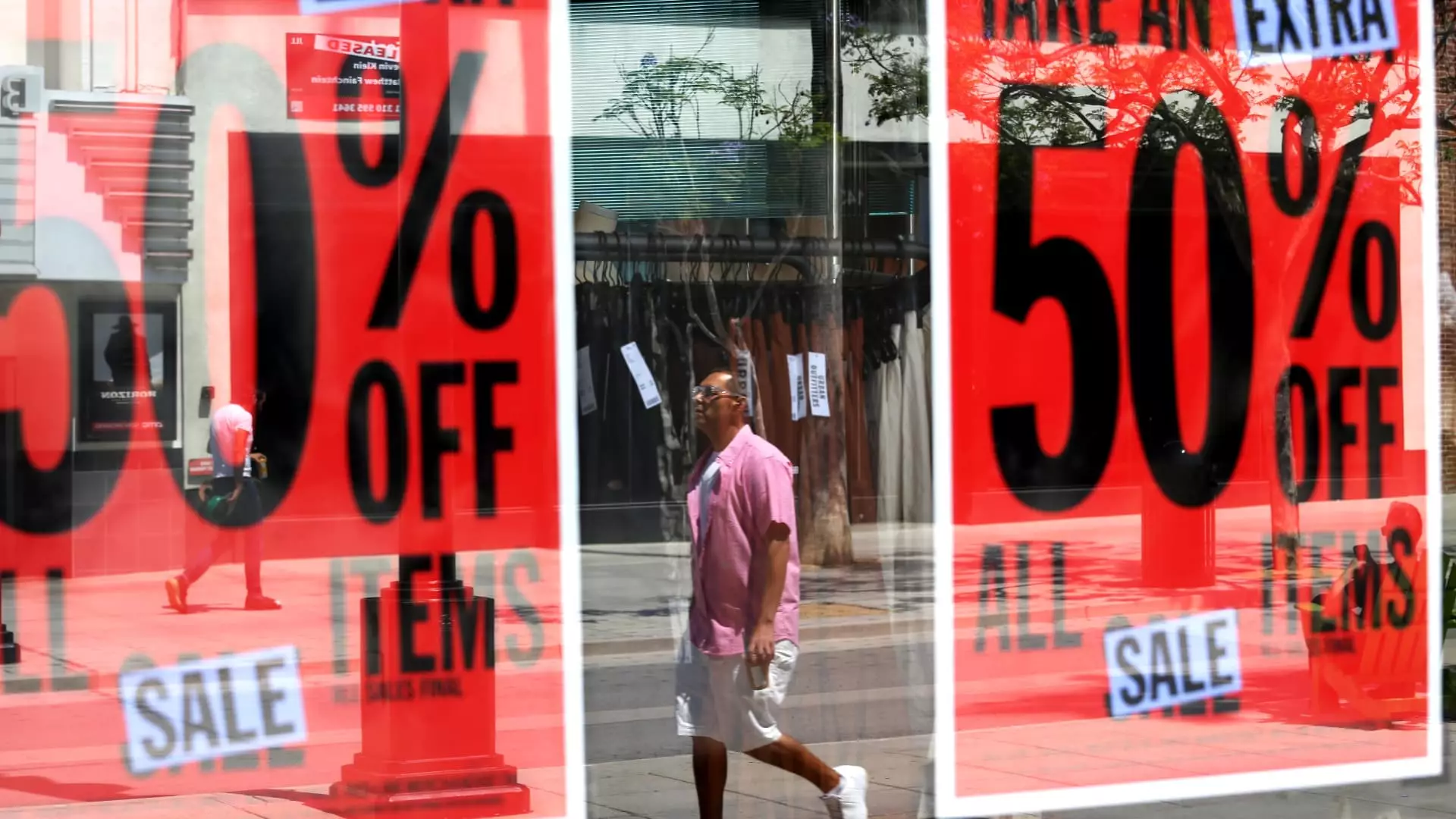In an environment where consumer trust flickers like a weakened bulb, the impact of President Donald Trump’s trade policies cannot be underestimated. As retailers scramble to adjust to an ever-evolving landscape shaped by tariff decisions, they find themselves grappling with steep consequences that extend beyond just economics; they seep into the psyche of the average consumer. The uncertainty surrounding tariffs has emerged as a double-edged sword, driving some retailers to implement hasty promotional strategies while sowing seeds of fear among consumers about future price hikes. This situation exposes a glaring gap in consumer confidence and points to a burgeoning dissatisfaction with political maneuvering that put financial security in jeopardy.
The unpredictable spikes in tariffs have sent ripple effects throughout the retail industry, enabling businesses to adopt the marketing mantra: “Buy now, before prices soar.” This narrative, while potentially beneficial in the short term, raises alarming questions regarding the long-term implications on retailer-consumer relationships. Businesses like Bare Necessities proceeded to create artificial urgency through “pre-tariff sales,” sending messages designed to incite fear of scarcity rather than demonstrating genuine customer loyalty. This strategy may momentarily buoy sales but ultimately chips away at consumer trust, creating a cycle where consumers are constantly on edge about looming price increases.
Desperation Breeds Innovation, But at What Cost?
Amidst this chaos, desperate attempts by retailers to sustain their revenue streams have led to frantic promotions and discount campaigns resulting in what can only be described as “panic selling.” As businesses find themselves in precarious positions, especially smaller brands, the need for immediate capitalization leads to tactics that can be seen as disingenuous. While established retailers like Target and Walmart can hedge their losses through diversified supply chains, smaller entities are caught in the fiscal whirlwind with limited options.
The marketing professor Lauren Beitelspacher highlights the vulnerability of these smaller companies, stating that they lack the luxury of global supply chains, placing them at an even greater disadvantage in adapting to the tariff crisis. This point underscores a disparity in resilience across the marketplace, which is alarming as it suggests that the innovative spirit of smaller brands will quench under the weight of government policy.
Encouraging immediate consumer spending, as seen with others promoting “get it while it lasts” offers, not only erodes margins but also underscores a troubling trend in the retail landscape: An unsteady reliance on urgency to drive profits. This approach could ultimately sway loyal customers away when they feel manipulated by marketing tactics that prioritize immediate gain over authentic value.
Humor Versus Crisis: A Strategic Balancing Act
Brands wrestling with the intricacies of tariffs have attempted to alleviate customer anxiety through humor—an increasingly favored method to navigate treacherous political waters. For instance, Beis, a luggage company, struck a candid yet humorous tone in a message, acknowledging the absurdity of unpredictable tariffs while urging consumers, “if you’ve been eyeing something, now might be a good time.” This blend of honesty and lightheartedness serves to neutralize the divisive sentiment surrounding tariffs, enticing consumers without alienating those who may hold differing political beliefs.
Yet, this approach raises an incongruent question: Should brands play the comedy card when discussing a topic that has real-life implications on their customers’ wallets? The uneasy intertwining of humor and political crisis undermines the gravity of fiscal responsibility and reveals an uncomfortable truth: marketing tactics designed to soften the blow of economic challenges may inadvertently dilute the harsh realities that consumers face.
Unlike brands attempting to employ humor as a strategy, others cast a less optimistic shadow, acknowledging the impact tariffs have made on operations but slipping in an urgent call-to-action. Such mixed messages may leave consumers bewildered; on one hand, they want to feel engaged with companies they buy from, yet on the other, they also seek clear, unvarnished truths about pricing.
The Crisis of Consumer Identity
At the heart of this issue lies a deeper crisis in consumer identity. The psychological toll of tariffs, promotions laced with urgency, and the unclear direction of retail choices results in an anxious consumer base. Decisions once made with confidence are now riddled with uncertainty and hesitation. For those who already face financial challenges, the prospect of developing a more significant trust in brands is stifled.
Politically charged environments can manifest in consumer behaviors, creating a battleground where purchasing decisions become expressions of dissent or agreement, often confusing the simplest of retail interactions. Consumers find themselves mired in the political discourse surrounding tariffs while trying to make informed and beneficial choices, only to discover that economic policies have transformed shopping into a game of apprehension.
The intricate web of tariffs, consumer sentiment, and retailer responses forms a complex ecosystem fraught with uncertainties and growing anxieties. This crisis demands greater vigilance from both consumers and businesses, pushing forth a reality that could redefine retail in ways not yet fully acknowledged.

